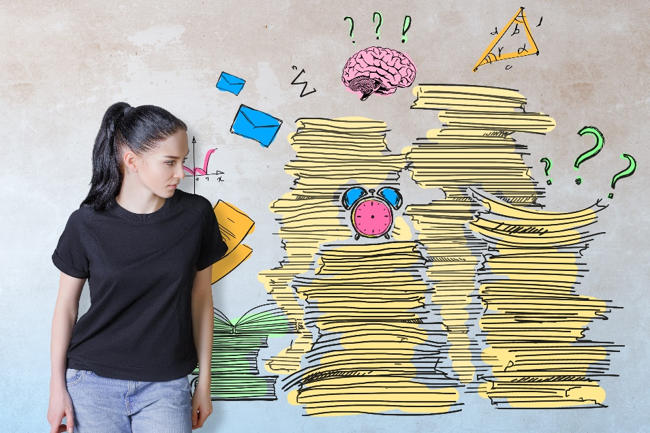Procrastination is one of the most frustrating self-defeating behavior patterns that people struggle with. And while chronic procrastinators do face negative consequences at work and in their relationships, there are a few positive aspects of procrastination that we shouldn’t overlook:
Procrastination Can be a Natural Filter for Selecting the Best Ideas
How long does it take you to get an idea? How many ideas do you get each day? Now, think – how long would it actually take you to implement each idea you get? No matter how great of an implementor you are – it’s technically impossible to act on all the great ideas out there. And, leaders who spread themselves too thin trying to drive their organizations to complete too many initiatives at once usually succeed at nothing more than burning people out.
If you are an idea person, procrastination can be a great natural tool to help filter out the ideas that don’t have staying power and select those that make the most sense. One simple process is to write ideas down as they come and continue to think about them in the back of your mind for a period of time. You might find yourself feeling drained by some of the ideas or simply forgetting them, while other ideas you can’t stop thinking about, and you find yourself more and more excited as it becomes clear how you can make them work.
You can use this same methodology to keep yourself sane if you have a visionary boss who continuously shares ideas with you and requests that you start implementing. I once met a manager who said of his boss, “I always write down what he tells me to do, but I don’t actually get started on it unless it comes up three times. That’s how I know it’s an idea that will stick.”
In this case, strategic and intentional procrastination can cross things off your to do list with no work on your part!
Procrastination Can Contribute to Better Innovation
Adam Grant, in his research for the book “Originals,” discovered that the most innovative people tend to procrastinate for a period of time, while letting a project sit and germinate in the back of their mind. This allows new connections and out of the box thinking to occur, which leads to more creative approaches.
When you get started on a project immediately, you’ll typically take the approach that comes to you first, or that you normally default to when getting work done. When you think about a project for a few days, this allows you to make comparisons in your mind to other things your project connects to. For example, I recently received a project to create a years’ worth of programming for a professional organization. At first I wanted to get it done immediately and proceeded to start on it right away. However, during my first week new information came to light that gave me several ideas about how to orchestrate our events in a slightly more complex but meaningful way – creating a higher quality experience for participants. This came from asking questions, listening to ideas and feedback from others, and researching potential topics – work that I would have had no reason to do before the project started.
I still don’t procrastinate long enough to get filled up with the adrenaline of deadline pressure. While I know many people who swear by the extra burst of adrenaline that fuels them in crises mode – typically what they are feeling is extreme focus, not creativity. Letting something germinate in your mind for a period of time before you get started helps with creativity, but waiting until the last minute actually simplifies your thinking as you hone in on what needs to happen to get your project done on time.
Procrastination Can Increase Your Self-Awareness
Most people who procrastinate are experiencing an inner conflict that they aren’t completely aware of. They might “feel” the battle between two opposing forces raging inside, but what they don’t see is what the “rebel force” dragging its feet, is actually standing for. It’s usually standing for something important – like protecting you from rejection or a feeling of failure. When you do the self-discovery work and bring the conflict to the surface, you can actually resolve it, and instead of draining your energy with an internal battle, this process allows you to make some decisions that help you protect yourself while also accomplishing your goals.
The exercise of looking at the underlying battle at the source of procrastination to discover your conflicting needs and values is what we’ll be focusing on in our upcoming free workshop on February 12, 2020. In both our in-person event and our webinar, you’ll have the opportunity to analyze the last few times you have procrastinated to discover a key to personal and professional growth.
If this intrigues you and you haven’t signed up yet, be sure to do so here, and feel free to share this event with friends and colleagues.

